Understanding dashboard warning lights in your Peugeot 208 is essential for keeping you safe on the road, as they alert you to potential issues that could lead to accidents or breakdowns.
These lights help with timely vehicle maintenance by signaling problems early, which can prevent costly repairs and ensure the car runs smoothly. Knowing what each light means allows you to take quick action, protecting both the vehicle and its passengers.
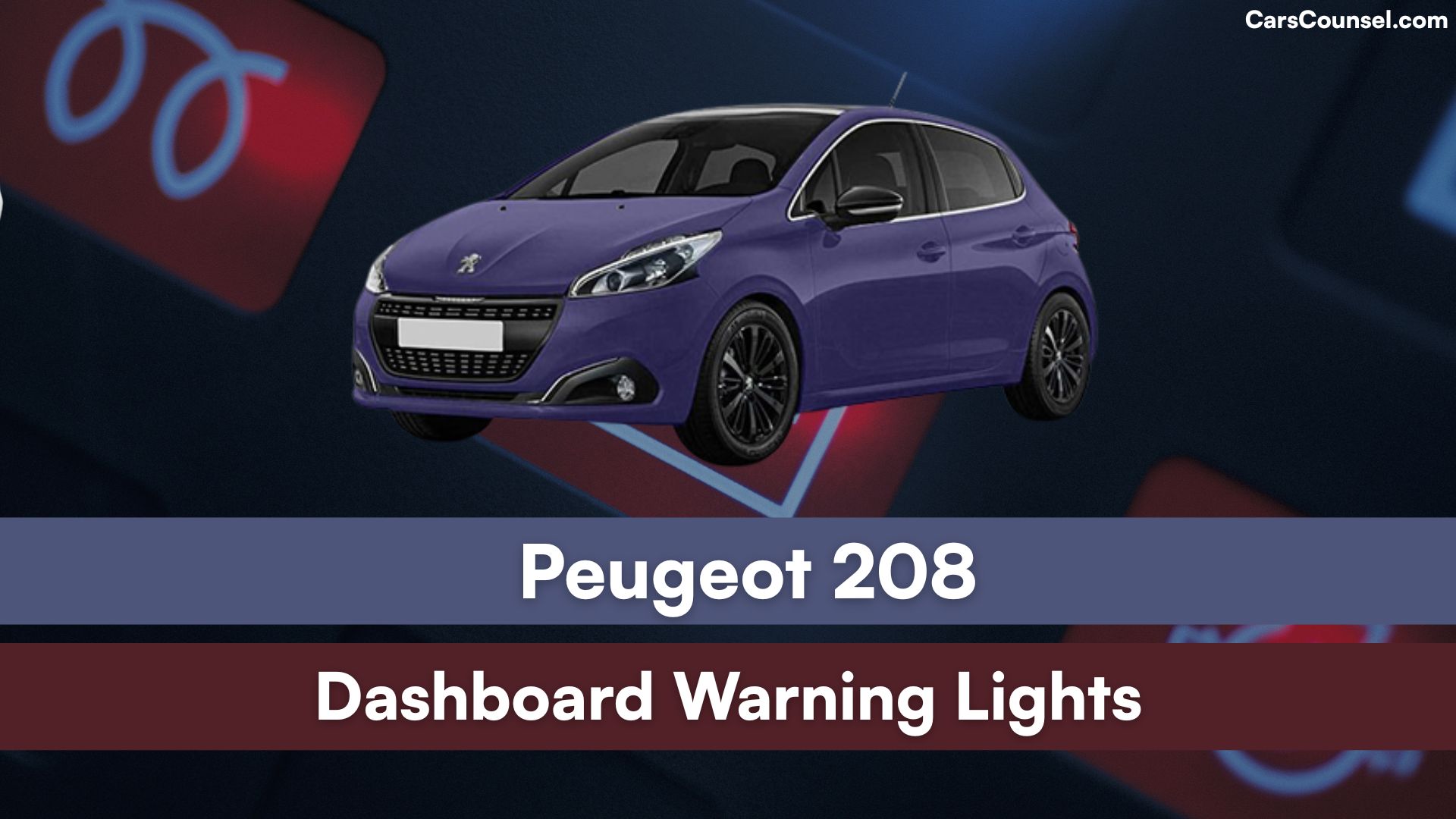
Quick Navigation
Red Warning Lights (Stop Immediately)
These lights signal serious issues that require you to stop driving right away to avoid danger or damage.
Engine Oil Pressure
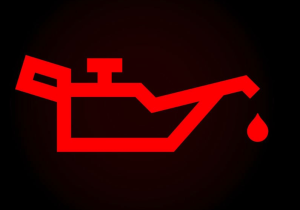
This light shows low oil pressure, which can cause engine damage from poor lubrication. Possible causes include low oil level or a pump fault. Stop the car safely, turn off the engine, check oil level, and get professional help before driving again.
Brake System Alert
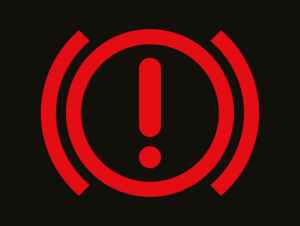
It indicates a problem with the brakes, like low fluid or a system failure. Causes might be worn pads or leaks. Pull over immediately, check brake fluid, and call a mechanic to inspect and fix it.
Parking Brake
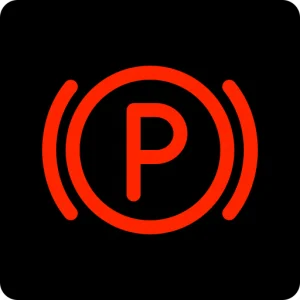
This appears when the parking brake is on or not fully released. In some cases, it signals a fault in the brake system. Release the brake if applied; if it stays on, stop and seek service to avoid driving risks.
STOP Light

A general alert for major faults in engine, brakes, or electrical systems. It often pairs with other lights for specifics. Stop as soon as safe, turn off the engine, and contact a Peugeot technician immediately.
Maximum Coolant Temperature
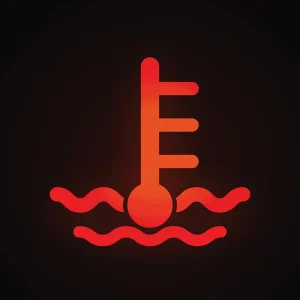
This warns of engine overheating, which can lead to severe damage. Causes include low coolant or a faulty thermostat. Stop the vehicle, let it cool, check coolant level, and have it serviced before continuing.
Battery Charge
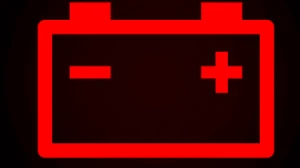
It signals a charging system issue, like a failing alternator or battery. The car may lose power soon. Stop safely, check connections, and get it to a garage for repairs to prevent stranding.
Seatbelt Reminder
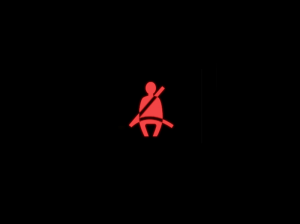
This reminds you or passengers to buckle up. It stays on if belts are unfastened. Fasten all seatbelts; if it persists, check sensors and visit a service center.
Airbag Fault

Indicates a problem with the airbag system, which might not deploy in a crash. Causes could be sensor issues or wiring faults. Stop and have it inspected by a professional right away for safety.
Power Steering Fault

This light means the power steering is not working properly, making steering hard. Possible causes are low fluid or system failure. Pull over, check fluid if possible, and call for assistance.
Door Ajar
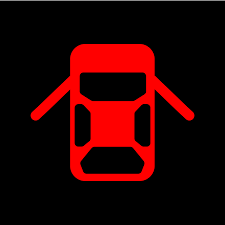
It shows a door is not fully closed, which is unsafe at speed. Check all doors and close them securely; if it remains, inspect latches and get help if needed.
Bonnet Open
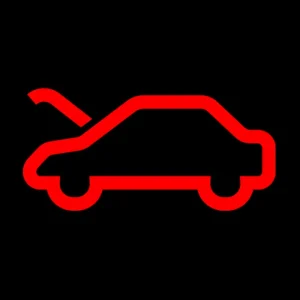
Alerts that the hood is not latched properly, risking it opening while driving. Stop, secure the bonnet, and ensure it’s locked before proceeding.
Boot Open
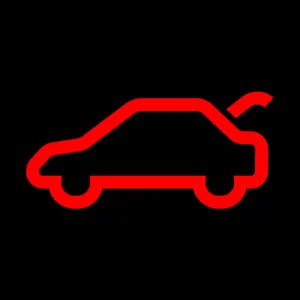
This indicates the trunk is not closed fully, which could lead to items falling out. Pull over, close the boot tightly, and verify it’s secure.
Low Brake Fluid
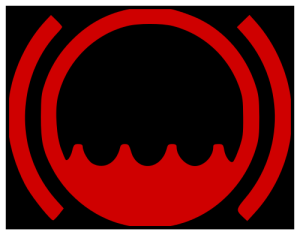
Signals low brake fluid level, affecting stopping power. Top up fluid if low, but stop driving and have the system checked for leaks.
Yellow/Amber Warning Lights (Action Required Soon)
These lights mean there’s an issue that needs attention soon, but you can usually keep driving carefully.
Service Indicator
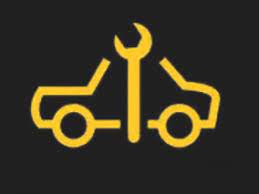
This reminds you of upcoming maintenance or a minor fault. Causes include low oil or filter issues. Schedule a service visit soon to check and resolve it.
Check Engine
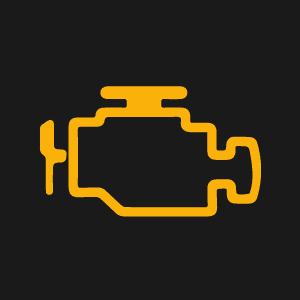
It signals an engine management problem, like emissions faults. Possible causes are sensor failures. Have the vehicle scanned and repaired at a garage promptly.
ABS System
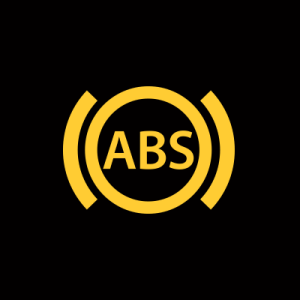
Indicates an anti-lock brake system fault, reducing braking efficiency in emergencies. Causes might be sensor or wiring issues. Drive cautiously and get it fixed soon.
Tyre Pressure Monitoring
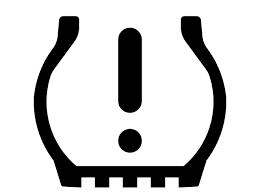
This warns of low tyre pressure, affecting handling and fuel use. Check and inflate tyres to the correct level; if it stays on, inspect for punctures.
Glow Plug (Diesel)
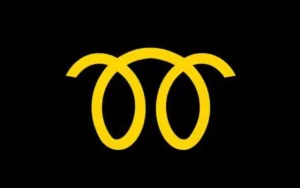
For diesel models, it shows the engine is preheating. If it stays on, there might be a glow plug fault. Wait for it to go off before starting; service if persistent.
Diesel Particulate Filter (DPF)
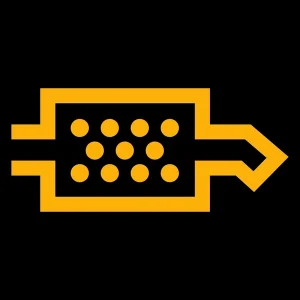
Alerts that the filter is clogged and needs cleaning. Drive at higher speeds to regenerate it, or visit a service center if it doesn’t clear.
ESP Stability Control
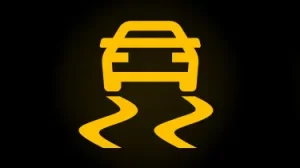
This indicates the electronic stability program is faulty or off. It helps with traction; causes include sensor problems. Turn it on if possible and have it checked soon.
Low Fuel Level
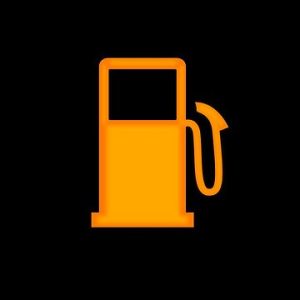
Warns that fuel is running low. Refuel at the next station to avoid running out.
Transmission Fault
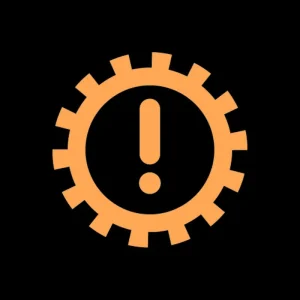
Signals an issue with the gearbox, like overheating. Drive gently and get it inspected by a mechanic.
Brake Pad Wear

Indicates worn brake pads needing replacement. Schedule a brake service to maintain stopping power.
Coolant Level Low
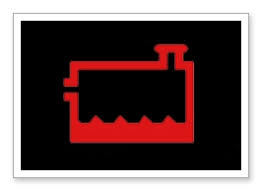
This means coolant is below safe levels. Top up coolant and check for leaks at a garage.
Eco Mode Fault
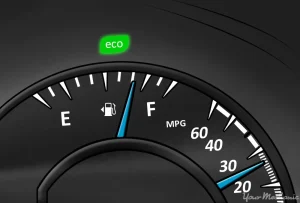
Shows a problem with the fuel-saving mode. Have the system checked to restore efficiency.
Lane Departure Warning
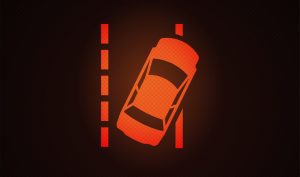
Indicates the lane assist system is faulty. Drive carefully and service it.
Blind Spot Monitoring
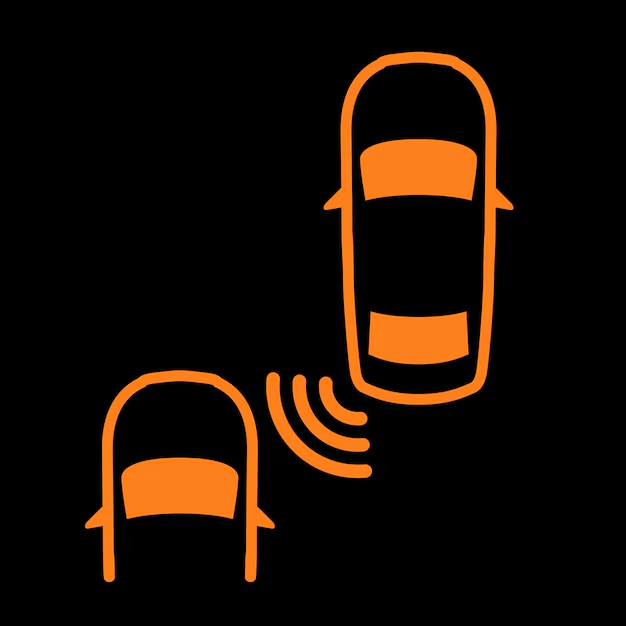
Alerts to a fault in blind spot detection. Get it repaired for added safety.
Adaptive Headlights Fault
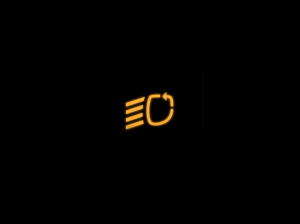
Means adaptive lights aren’t working. Have them fixed for better night visibility.
Rain Sensor Fault
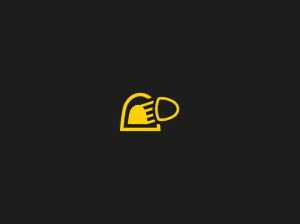
The automatic wiper sensor is malfunctioning. Manually control wipers and repair soon.
Green Information Lights (Information Only)
These lights provide status updates on systems that are active or normal, with no immediate action needed.
Headlights On

Indicates dipped or main beam headlights are active. Adjust as needed for visibility.
Front Fog Lights

Shows front fog lamps are switched on for poor weather. Turn off when not needed.
Rear Fog Lights
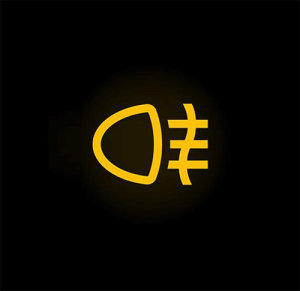
This means rear fog lights are active to improve visibility from behind. Use only in fog.
Direction Indicators
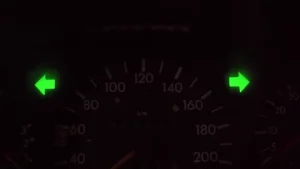
Blinks when turn signals are in use. Ensure they work for safe lane changes.
Cruise Control
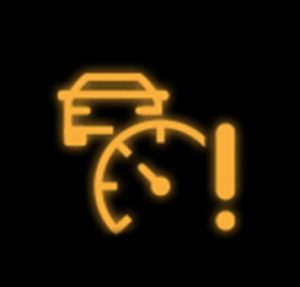
Illuminates when cruise control is set and maintaining speed. Adjust or deactivate as required.
Speed Limiter
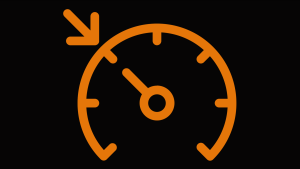
Shows the speed limiter is active, capping your maximum speed. Set it for controlled driving.
Stop & Start System
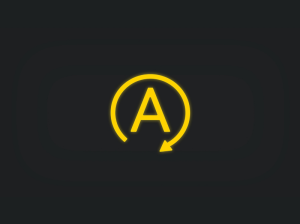
Indicates the engine auto-stop feature is on, saving fuel at stops. It restarts automatically.
High Beam

This confirms high beam headlights are on. Dip them for oncoming traffic.
Automatic Wipers
Indicates rain-sensing wipers are enabled. They adjust based on rain intensity.
Hill Start Assist
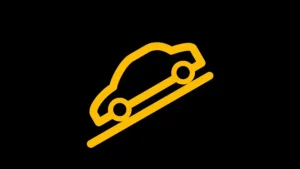
This is on, helping prevent rollback on inclines. It activates automatically.
Lane Keeping Assist

Shows the system is active, helping stay in lane. Drive normally.
Electric Mode (Hybrid)
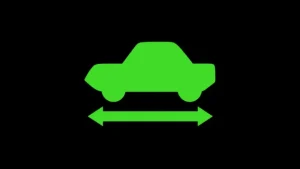
For hybrid models, it shows electric driving is active. Enjoy quiet, efficient mode.
Charge Indicator (Hybrid)
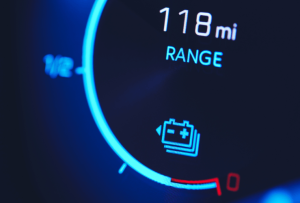
Indicates battery charging during braking. No action; it’s optimizing energy.
Power Mode (Hybrid)
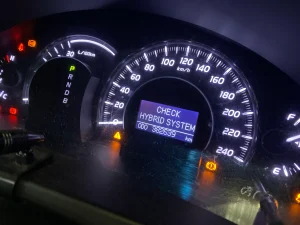
Shows higher power usage for acceleration. It’s informational for driving style.
Ready Indicator (Electric)
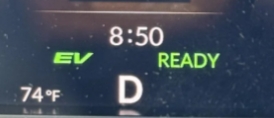
For electric variants, confirms the vehicle is ready to drive. Proceed as usual.
When looking at Peugeot, make sure to check out our guides on models like the Peugeot Boxer, Peugeot 2008, Peugeot 108, and Peugeot 3008. Understanding dashboard warning lights is essential. Our expert reviews break down what each light means, highlighting common alerts for these models and what they could signal about underlying issues, so you’re never left guessing behind the wheel.


